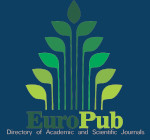Produtividade da cebolinha (Allium fistulosum L.) cultivada em diferentes fontes de adubação orgânica
DOI:
https://doi.org/10.17648/diversitas-journal-v5i4-1087Abstract
ABSTRACT: The chives (Allium fistulosum L.) is a popular condiment in Brazil, and a perennial crop with cylindrical and fistulous leaves. In recent decades, there has been an increase in the search for healthy foods with organic fertilizing. The culture of chives is present in cooking and has a great nutritional and economic importance. The study aimed to evaluate the productivity of chives (A. fistulosum) grown in pots, testing different sources of organic fertilizing. The experiment was carried out at Campus I of the State University of Alagoas in Arapiraca – AL, in a greenhouse with 50% in luminosity retention, during the months of March to May 2019. For soil preparation and vases filling, the 2:1 proportion (two soil vase and one substrate/manure) were used. The experimental arrangement was entirely random with four treatments and five repetitions (T1 – carbonized rice husk, T2 – cattle manure, T3 – goat manure and T4 – bed aviary). After the study, it was observed that the treatments bed aviary and bovine presented significant results by the Tukey mean comparison test at 5% probability. It can be concluded that the bed aviary and bovine manure are fertilizers that can contribute to the productivity of chives.
KEYWORDS: Natural foods; Vegetables; Productivity.
Metrics
Downloads
Published
How to Cite
Issue
Section
License
Copyright (c) 2020 Rodrigo Almeida Pinheiro, Maria Jéssica dos Santos Cabral, Jecilãine Efigênia da Silva, João Pedro Silva Oliveira, Daniel Rocha Santos, Rubens Pessoa de Barros

This work is licensed under a Creative Commons Attribution 4.0 International License.
The Diversitas Journal expresses that the articles are the sole responsibility of the Authors, who are familiar with Brazilian and international legislation.
Articles are peer-reviewed and care should be taken to warn of the possible incidence of plagiarism. However, plagiarism is an indisputable action by the authors.
The violation of copyright is a crime, provided for in article 184 of the Brazilian Penal Code: “Art. 184 Violating copyright and related rights: Penalty - detention, from 3 (three) months to 1 (one) year, or fine. § 1 If the violation consists of total or partial reproduction, for the purpose of direct or indirect profit, by any means or process, of intellectual work, interpretation, performance or phonogram, without the express authorization of the author, the performer, the producer , as the case may be, or whoever represents them: Penalty - imprisonment, from 2 (two) to 4 (four) years, and a fine. ”















.png)




